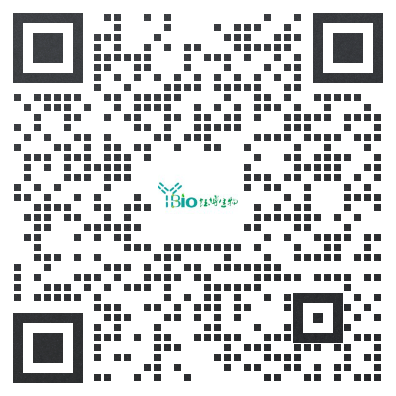
Anti-CD22抗体
产品名称: Anti-CD22抗体
英文名称: CD22
产品编号: YB--30099M
产品价格: null
产品产地: 中国/美国
品牌商标: Ybscience
更新时间: 2023-08-17T10:29:50
使用范围: 科研使用
上海钰博生物科技有限公司
- 联系人 : 陈环环
- 地址 : 上海市沪闵路6088号龙之梦大厦8楼806室
- 邮编 : 200612
- 所在区域 : 上海
- 电话 : 183****2235 点击查看
- 传真 : 点击查看
- 邮箱 : shybio@126.com
- 二维码 : 点击查看
Anti-CD22抗体
| 产品编号 | YB-30099M |
| 英文名称 | CD22 |
| 中文名称 | 小鼠抗人CD22单克隆抗体 |
| 别 名 | B cell receptor CD22 precursor; B lymphocyte cell adhesion molecule; BL CAM; BL-CAM; BLCAM; CD 22; CD22 antigen; CD22 molecule; CD22 protein; Leu14; Lyb8; MGC130020; Sialic acid binding immunoglobulin like lectin 2; SIGLEC 2; SIGLEC2; SIGLEC-2; FLJ22814; MGC130020; CD22_HUMAN; B-cell receptor CD22; B-lymphocyte cell adhesion molecule; Sialic acid-binding Ig-like lectin 2; Siglec-2; T-cell surface antigen Leu-14; CD22. |
| 规格价格 | 50ul/880元 购买 100ul/1580元 购买 大包装/询价 |
| 说 明 书 | 50ul 100ul |
| 研究领域 | 肿瘤 免疫学 细胞表面分子 b-淋巴细胞 |
| 抗体来源 | Mouse |
| 克隆类型 | Monoclonal |
| 克 隆 号 | HIB22 |
| 交叉反应 | Human, |
| 产品应用 | Flow-Cyt=1µl/Tests not yet tested in other applications. optimal dilutions/concentrations should be determined by the end user. |
| 分 子 量 | 91kDa |
| 细胞定位 | 细胞膜 |
| 性 状 | Lyophilized or Liquid |
| 浓 度 | 1mg/ml |
| 免 疫 原 | KLH conjugated synthetic peptide derived from human CD22: |
| 亚 型 | IgG1 |
| 纯化方法 | affinity purified by Protein G |
| 储 存 液 | 0.01M TBS(pH7.4) with 1% BSA, 0.03% Proclin300 and 50% Glycerol. |
| 保存条件 | Store at -20 °C for one year. Avoid repeated freeze/thaw cycles. The lyophilized antibody is stable at room temperature for at least one month and for greater than a year when kept at -20°C. When reconstituted in sterile pH 7.4 0.01M PBS or diluent of antibody the antibody is stable for at least two weeks at 2-4 °C. |
| PubMed | PubMed |
| 产品介绍 | background: Mediates B-cell B-cell interactions. May be involved in the localization of B-cells in lymphoid tissues. Binds sialylated glycoproteins; one of which is CD45. Preferentially binds to alpha-2,6-linked sialic acid. The sialic acid recognition site can be masked by cis interactions with sialic acids on the same cell surface. Upon ligand induced tyrosine phosphorylation in the immune response seems to be involved in regulation of B-cell antigen receptor signaling. Plays a role in positive regulation through interaction with Src family tyrosine kinases and may also act as an inhibitory receptor by recruiting cytoplasmic phosphatases via their SH2 domains that block signal transduction through. Function: Mediates B-cell B-cell interactions. May be involved in the localization of B-cells in lymphoid tissues. Binds sialylated glycoproteins; one of which is CD45. Preferentially binds to alpha-2,6-linked sialic acid. The sialic acid recognition site can be masked by cis interactions with sialic acids on the same cell surface. Upon ligand induced tyrosine phosphorylation in the immune response seems to be involved in regulation of B-cell antigen receptor signaling. Plays a role in positive regulation through interaction with Src family tyrosine kinases and may also act as an inhibitory receptor by recruiting cytoplasmic phosphatases via their SH2 domains that block signal transduction through dephosphorylation of signaling molecules. Subunit: Predominantly monomer of isoform CD22-beta. Also found as heterodimer of isoform CD22-beta and a shorter isoform. Interacts with PTPN6/SHP-1, LYN, SYK, PIK3R1/PIK3R2 and PLCG1 upon phosphorylation. Interacts with GRB2, INPP5D and SHC1 upon phosphorylation. May form a complex with INPP5D/SHIP, GRB2 and SHC1. Subcellular Location: Cell membrane; Single-pass type I membrane protein. Tissue Specificity: B-lymphocytes. Post-translational modifications: Phosphorylation of Tyr-762, Tyr-807 and Tyr-822 are involved in binding to SYK, GRB2 and SYK, respectively. Phosphorylation of Tyr-842 is involved in binding to SYK, PLCG2 and PIK3R1/PIK3R2. Phosphorylated on tyrosine residues by LYN (By similarity). Similarity: Belongs to the immunoglobulin superfamily. SIGLEC (sialic acid binding Ig-like lectin) family. Contains 6 Ig-like C2-type (immunoglobulin-like) domains. Contains 1 Ig-like V-type (immunoglobulin-like) domain. SWISS: P20273 Gene ID: 933 Database links: Entrez Gene: 933 Human Entrez Gene: 12483 Mouse Entrez Gene: 308501 Rat Omim: 107266 Human SwissProt: P20273 Human SwissProt: P35329 Mouse Unigene: 579691 Human Unigene: 260994 Mouse Important Note: This product as supplied is intended for research use only, not for use in human, therapeutic or diagnostic applications |
